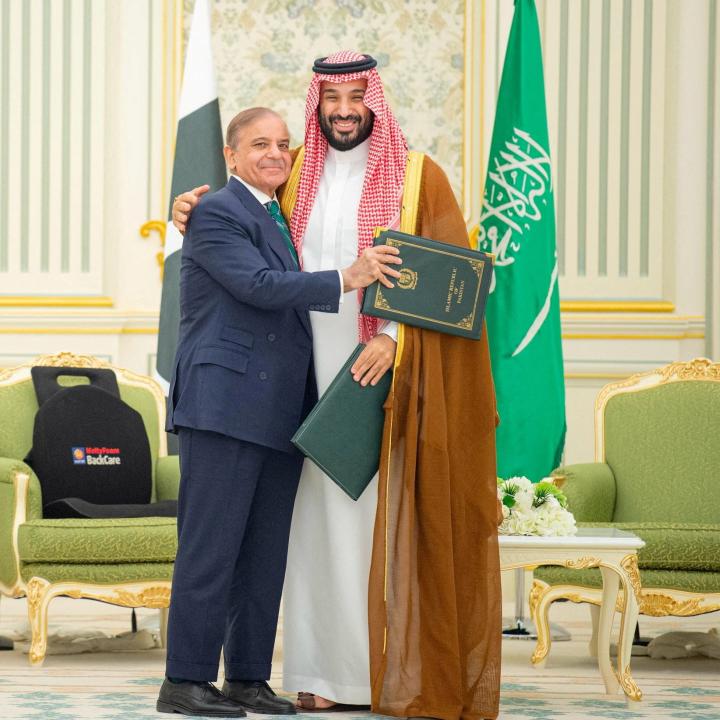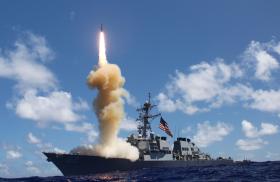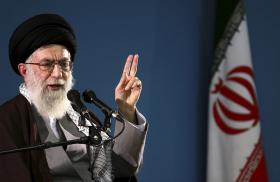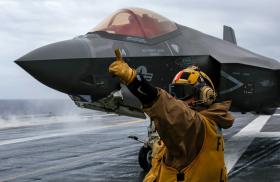
- Policy Analysis
- Policy Alert
Will Saudi Arabia’s New Defense Agreement with Pakistan Have Proliferation Consequences?

The deal seems mostly symbolic given that Riyadh is a major trading partner with India—Pakistan’s main adversary—but the implications may nevertheless be significant for regional proliferation concerns, nuclear energy ambitions, and related U.S. diplomacy.
During a state visit to Riyadh on September 17, Pakistani Prime Minister Shehbaz Sharif joined Saudi Crown Prince Muhammad bin Salman in signing a “strategic mutual defense agreement,” which states that “any aggression against either country shall be considered an aggression against both.” Diplomatically, this move appears to express regional frustration with Washington, accentuated in recent days by the Trump administration’s handling of Israel’s attack on Hamas leaders inside Qatar. Yet the agreement has probably been long in gestation. In November 2024, Pakistani army chief Asim Munir traveled to Riyadh for talks on “ways to further strengthen defense cooperation,” then visited again this June accompanied by Prime Minister Sharif, and a third time this week for the agreement’s signing.
Some have speculated that the Saudis will now have access to Pakistan’s nuclear arsenal. When asked whether Pakistan would be obliged to provide the kingdom with a nuclear umbrella, a senior Saudi official told Reuters, “This is a comprehensive defensive agreement that encompasses all military means.” Since 1998, Pakistan has produced an estimated 170 nuclear warheads deliverable by ballistic missiles, aircraft, or cruise missiles.
Riyadh’s own nuclear weapons ambitions have become increasingly explicit over the years. In 2018, Crown Prince Muhammad told 60 Minutes, “Saudi Arabia does not want to acquire any nuclear bomb, but without a doubt if Iran developed a nuclear bomb, we will follow suit as soon as possible.” And in 2022, the kingdom’s foreign minister told a conference in Dubai, “If Iran gets an operational nuclear weapon, all bets are off.” Although Iran’s nuclear program took a heavy hit from the U.S. and Israeli bombing campaigns in June, concerns persist about the whereabouts of its stocks of uranium, much of which had been enriched to near weapons grade.
Saudi Arabia is thought to have plans for a centrifuge enrichment plant, and the kingdom currently limits the access of inspectors from the International Atomic Energy Agency (IAEA).Well-placed Western officials also concede that the kingdom was the fourth, unpublicized customer of A. Q. Khan, the late Pakistani nuclear scientist and proliferator who sold centrifuge equipment to Iran, Libya, and North Korea. In 1999, Saudi Defense Minister Prince Sultan, a full brother to the current king, visited Pakistan’s main enrichment plant at Kahuta.
Concerns about Saudi Arabia’s nuclear weapons plans date back further, to 1988, when the kingdom acquired nuclear-capable, long-range Dong Feng–3 missiles from China. U.S. officials learned of this deal only when the missiles were spotted on trucks being transported to their launch sites in the Saudi desert.
On September 15, IAEA director-general Rafael Grossi outlined the broader challenge: “Even within some countries in good standing with their obligation under the Nuclear Nonproliferation Treaty, there are now open discussions about whether or not to acquire nuclear weapons. Think for a minute about a world where instead of a few, we would have twenty or twenty-five countries armed with nuclear weapons.”
The Pakistan-Saudi agreement will also concern Washington because of the hoped-for nuclear arrangement with the United States that would likely complement Israel-Saudi normalization should it once again become viable. And it would hinder the India–Middle East–Europe Economic Corridor (IMEC), which is designed to establish a sea and land trade route connecting India and Israel via Saudi Arabia and Jordan. The details and meaning of the Riyadh accord may well become clearer when the Pakistani prime minister soon arrives in New York to attend the session of the UN General Assembly.
Simon Henderson is the Baker Senior Fellow at The Washington Institute and director of its Bernstein Program on Gulf and Energy Policy.



